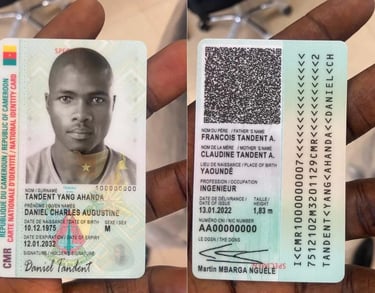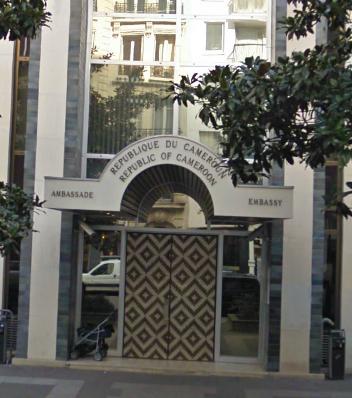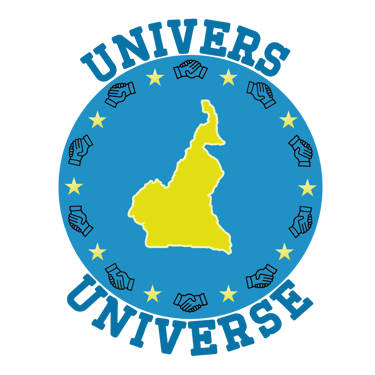Chapter 3: On Cameroonian Nationality


A nation is a vast human collective, bound by the awareness of its unity and the will to live together. It is usually anchored to a territory and embodied by a governing authority.
When someone recognizes themselves as part of such a nation—and meets the legal conditions of attachment—they are said to hold its nationality.
In Cameroon, nationality raises two burning questions:
1. The question of national feeling
2. The question of dual nationality
Theme 1 – The Question of National Sentiment


The Issue
Back in colonial times, a Cameroonian’s identity was pinned to their tribe. One was said to be of the “Ewondo race,” the “Bassa race,” the “Peulh race,” and so on—“race” being a colonial label, a way to say “Black subject,” distinguishing locals from white colonists.
This identification, both tribal and racial, seeped into the psyche of indigenous and “evolved” Cameroonians alike.
And today? Though officially, neither race nor tribe are part of a citizen's identity anymore...
In practice, the average Cameroonian still introduces themselves as “Eton,” “Toupouri,” “Maka,” or “Sawa” before they say “Cameroonian.”
The so-called regional balance policy—really just a tribal balancing act—has cemented this tribal loyalty.
People show up in national spaces as tribe ambassadors, defending tribal interests more fiercely than national ones.
Associations, political movements, businesses—many are built on tribal lines.
The idea of Cameroon becomes abstract, a thing floating apart from the tribe.
And so, the nation is often sacrificed for the benefit of the clan.
This shows in:
· Public funds being misappropriated to serve one’s tribe;
· National institutions being hijacked by tribal circles;
· A Cameroonian being treated as a foreigner in another region;
· Electoral lists dominated by hometowns, even for those who don’t live there;
· Mayors and MPs running only for their natal land, not the broader republic.
This tribal obsession smothers national solidarity.
Development gets chopped into ethnic fiefdoms instead of unified progress.
Even the Constitution of 1996, without defining them legally, introduced the terms "indigene" and "non-indigene"—terms that over 30 years later still have no official meaning, but are crystal-clear in the social mind.
Let’s bring it home with a story:
Oumarou Sanda, born in Yaoundé in 1990.
His father, also born in Yaoundé.
His grandfather moved from Garoua in 1950.
Today, the Oumarou family is fully established in Yaoundé: businesses, buildings, roots.
No one goes back to Garoua.
But in Cameroonian sociology?
They’re still “indigenes” of Garoua and “non-indigenes” in Yaoundé.
This absurd vision of nationality erodes the sense of belonging and needs urgent rethinking.
The Solutions
On this subject, Cameroonians are divided.
Some cling fiercely to their tribal roots; others argue it’s time to shed tribalism in public life.
The UNIVERS Party proposes a real, frank, and inclusive debate.
Let the people decide:
· Should we keep “indigene” and “non-indigene” in the Constitution and institutional practices?
If the answer is yes, then we need clear sociological and legal definitions,
alongside rules that preserve unity, integration, and national cohesion.
Because no matter what, Cameroonian nationality and equal rights for all—everywhere on national soil—must be upheld.
Theme 2 – The Diaspora and Dual Nationality


A Bit of History
The Cameroonian diaspora didn’t start with airplanes.
It began with chains.
· 1472: Cameroonians are taken to Portugal—displayed in city squares as curiosities.
· Slave trade: Thousands shipped to the Americas in bondage.
· World Wars: Forced into colonial armies, sent to Europe.
· Then came voluntary waves—mainly economic escapes from the grip of poor governance.
From France to Germany, the U.S. to the Gulf, the Cameroonian spirit roams the globe.
The Problems
But our people abroad face heavy burdens:
· No support from the Cameroonian government;
· Excluded from national affairs;
· Neglected or mistreated by Cameroonian consular staff;
· And stripped of nationality once they take on another.
The Solutions
Let’s fix this with three bold strokes:
1. Adopt Dual Nationality
A nation grows by harnessing the strength of all its children—no matter where they are.
We must:
· Encourage our diaspora to serve Cameroon;
· Restore their right to hold Cameroonian nationality;
· Protect and guide them.
This calls for a new nationality code—because the current law is a relic from 1968, born out of fear and conflict.
Back then, Cameroon had just gained independence in awkward conditions.
The law was crafted to punish exiled opponents by stripping them of nationality.
But that era is gone.
Today’s diaspora isn’t fighting independence—they want to contribute.
They want to:
· Come home;
· Invest;
· Share their expertise;
· Support families;
· Advocate for Cameroon on the world stage.
Let them come home without needing a visa or residence permit.
Let them belong, legally and emotionally.
2. Integrate the Diaspora into National Life
A special department under the Ministry of Foreign Affairs will be tasked with:
· Mapping and cataloging the skills of Cameroonians abroad;
· Identifying areas back home where their investment is needed;
· Creating tailored opportunities and actively seeking them out.
